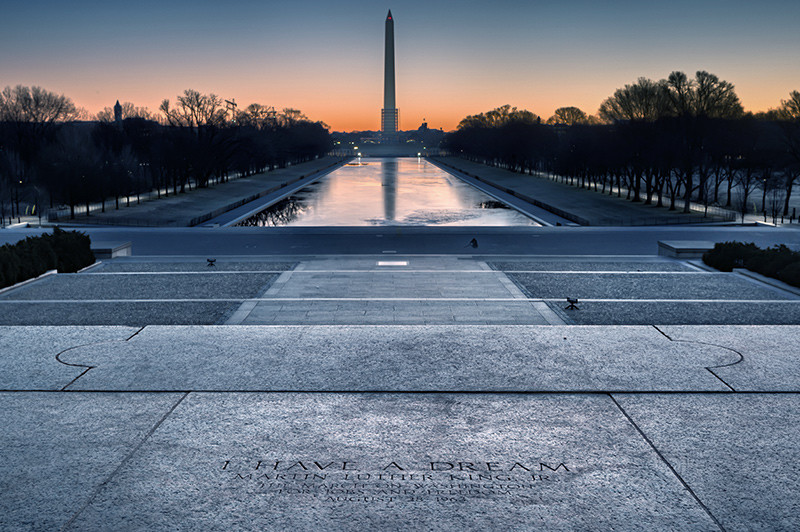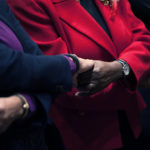Reverend Dr. Martin Luther King Jr.’s legacy of hope

Reverend Dr. Martin Luther King, Jr. stood for many things: justice, non-violence, hope. Even in the face of violent resistance, his belief in a better future inspired a movement that led to the passage of the Civil Rights Act of 1964 and the Voting Rights Act of 1965.
How does Dr. King’s message of hope apply in today’s world? Faced with a pandemic that continues to reverberate and the health inequities it illuminated, many may be tempted to dismiss hope as unrealistic.
Here, two Boston Children’s leaders share how Dr. King inspires them to remain hopeful in their work to achieve a better tomorrow for today’s children.
The life we lead is bigger than ourselves

In the words of the great Dr. Martin Luther King, Jr.:
This has been a mantra in my life: keep moving forward. We seek to find meaningful ways to do that every day at Boston Children’s, and I do that every day in my personal life: seek meaningful ways to positively impact the world around us.
Whether it is one community at a time, one organization at a time, one family at a time, or one patient at a time, we find meaningful ways to make positive change in the lives of others.
The legacy and the life of Dr. King say to all of us that the life we lead is bigger than ourselves. The picture is much greater than what we can see.
And so, we seek, and we find ways, and we position ourselves so that we can serve the greater good. In this way, Dr. King’s dream lives on.
Hope is a tool in our tool belt of progress

If hope were a person, it would be Dr. Martin Luther King, Jr.
Hope has weight. Gritty and persistent, hope helps us rise when we fall. Hope is a necessary tool in our tool belt of progress.
We are Boston Children’s and hope is in our DNA. It’s why we seek to cure the currently incurable. It’s why despite the challenges, we keep going, together.
We know the challenges and resistance MLK faced are still here, laid bare by today’s multiple crises.
In his 1965 poem, A Dead Man’s Dream, Carl Hines writes:
Now that he is safely dead,
Let us praise him.
We, with eased consciences will
Teach our children that he was a great man,
Knowing that the cause for which he
Lived is still a cause
And the dream for which he died is still a dream.
Hope doesn’t let us off easy. Hope is that dogged feeling that something better is possible. We at Boston Children’s believe in the possible. It’s what makes us all achievers.
Let’s help each other. Let’s be hope in action. Start where you are, with what you have and what you’re passionate about. Look at your routine, your goals, your priorities. Ask what part of the dream can I make a reality? How can I build a better, more equitable world?
Learn about initiatives in health equity and inclusion at Boston Children’s.
Related Posts :
-

What Martin Luther King, Jr. taught us about leadership
Among the individuals who have helped shape American history, the Reverend Dr. Martin Luther King, Jr. stands out. As one ...
-

Making pediatric health equity research truly equitable: An EDI review process
A burgeoning number of studies are examining pediatric health equity, diversity, and inclusion (EDI). But if not done right, health ...
-

Medical care for youth with neurodevelopmental disabilities: A call for change
According to national data, one in six children has a neurodevelopmental disability (NDD) such as autism, intellectual disability, or ADHD. ...
-

Revisiting race and ethnicity in clinical guidelines
Health care institutions often rely on clinical pathways in assessing patients and making decisions about their care. Some of these ...





